PARENTS ON THE SOCCER SIDELINE SERIES: How to be a Better Soccer Parent
Youth Soccer Players Deserve Parents Who Are Calm and Respect Their Love of the Game.
While some parents and many great teachers spend an enormous amount of time and energy on how to frame constructive feedback, soccer parents often just let it rip when their kids get off the field. Some parents don’t even wait till the game is over and coach from the sideline.
Everyone – coaches and players – hate this.
The way a parent chooses to motivation his or her child tends to vary in all manners throughout the game. We have the parents that sit and enjoy the chance to watch their kid play over the weekend, as well as the parent who lets you know all his feelings and aspiration to get on the field himself.
Youth players tend to not always have the same reactions when it comes to criticism, which should always be the main concern in a competitive atmosphere.
SoccerToday’s Diane Scavuzzo asked Jason Pratt his advice on how to help soccer parents and more importantly, our youth soccer players in our latest edition of Parent on the Soccer Sidelines as he discusses constructive criticism and parents who still wish to live the dream.
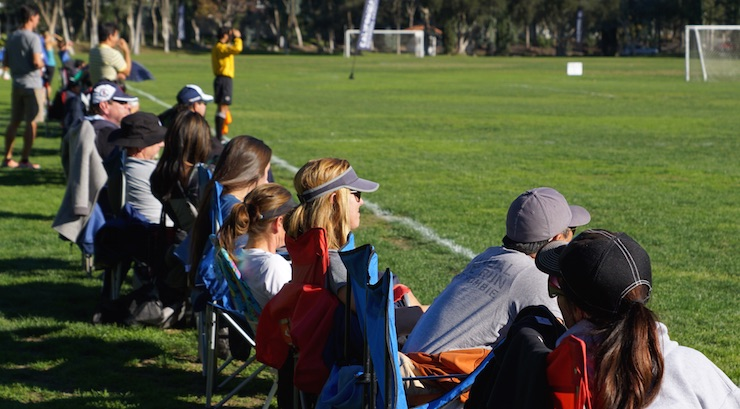
Related Article: Parents on the Soccer Sidelines – SoccerToday Hall of Fame article has reached over 500,000 people on FaceBook — and has already been read by more than 91,228 readers as of this morning.
And check out the latest article in this important series: Parents on the Soccer Sidelines – How To Deal With Negative Parents
Diane Scavuzzo: Why do parents think they are helping their kids but are so oblivious to how bad they make them feel?
Jason Pratt: The assumption is reasonable — I can improve my child’s play by pointing out the things she or he isn’t doing well to “help her learn”.
There are many flaws with this well-intentioned assumption:
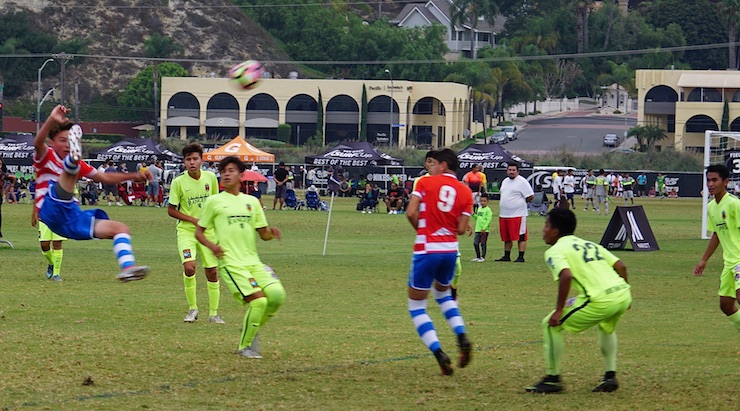
The child very often is aware of the mistake that was made and doesn’t really benefit from the simple reference to it. Especially when that reference is so often constructed negatively or with sarcasm.
The pro soccer player makes a ton of mistakes, so how many do we think our YOUTH players are going to make? Why do we expect more of our kids than we do from our paid professionals?
The approach of pointing-out each flaw translates into a lot of negativity and judgment from the parent whose primary role is unconditional love and support.
Let the coach prioritize what needs help and what can be best learned from trial and error – let that process breathe!
- There is an art to the timing and method of these conversations.
- It isn’t as obvious to us as it feels like it should be – but it also isn’t a difficult skill to learn.
Both ProConnect Sports and Positive Coaching Alliance offer solutions for this – but not enough clubs yet focus their attention on bringing in programs to help educate parents.
We need to invest a little in the parents, as they are investing in our clubs as well as in the development of their children.
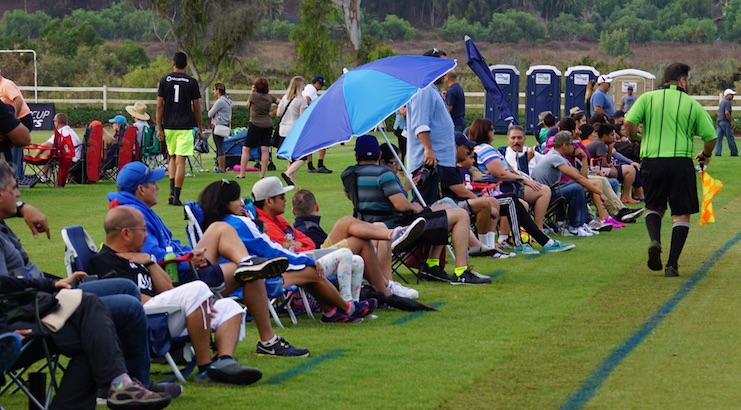
Diane Scavuzzo: Helping kids take criticism constructively is hard enough without the pressure from a typical soccer parent. How and when should a parent offer constructive criticism?
Jason Pratt: Parents should not offer constructive criticism until they have asked their child if he/she is interested in having the discussion and if now is a good time.
Allowing the youth soccer player to provide this feedback will give the child the all-important feeling of control. It will also go a long way towards avoiding an unproductive and friction-creating conversation.
If your goal — as the parent is to help — then isn’t it a no-brainer that this constructive criticism chat is set-up as a two-way conversation instead of a parent pushing an agenda and acting like ‘we’ are trying to ‘win’ what ends up usually as an argument?
That’s the key – you’re not trying to make the point that wins the day. Get into the mindset of what you can do to help this person you care about. It’s not about you.
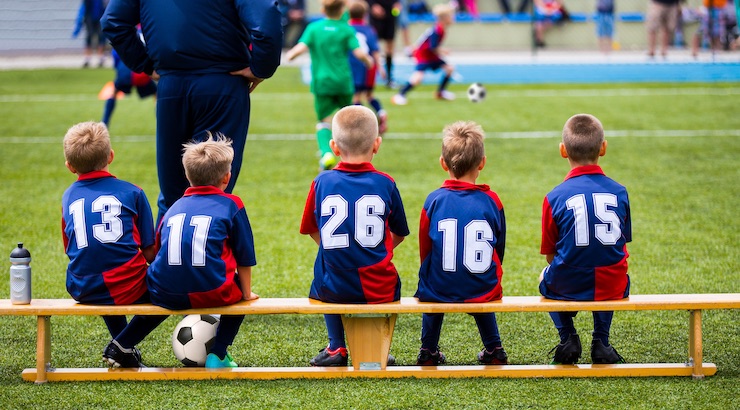
One recommendation on ‘how” I would like to share with all parents is to start the process by asking the child his/her thoughts about the topic or situation. Start with the child’s perspective, remember your goals in the conversation, and then decide where to take the conversation from there.
Put them in control, let them be heard, and let the focused outcome be based around what THEY would need or want and not what we parents just absolutely feel like we must say!
One recommendation on ‘how” I would like to share with all parents is to start the process by asking the child his/her thoughts about the topic or situation. Start with the child’s perspective, remember your goals in the conversation, and then decide where to take the conversation from there.
Put them in control, let them be heard, and let the focused outcome be based around what THEY would need or want and not what we parents just absolutely feel like we must say!
Diane Scavuzzo: What to do if your spouse is “that” embarrassing soccer parent screaming from the sideline?
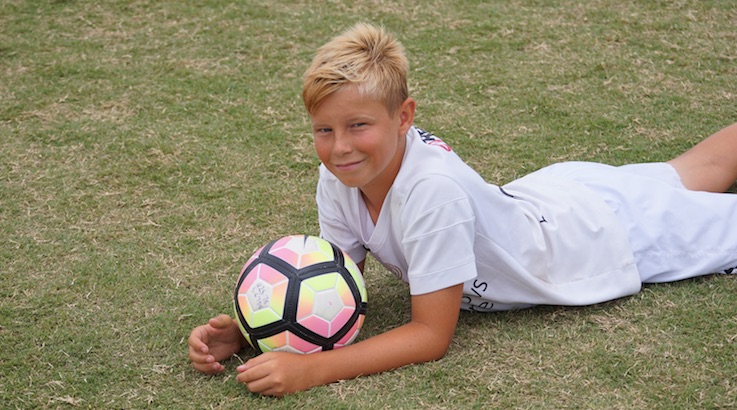
Jason Pratt: You’re trying to get me in trouble here with couples all across America, aren’t you? A few quick thoughts:
Print or forward my SoccerToday article about Soccer Parents on the Sideline to that spouse – present it as a “Huh, interesting article…” moment. Let me be the bad guy.
Bring a lollipop with you to the game and be sure to offer it to him/her — it is hard to be too focal while enjoying your candy.
- Assign — or have the coach assign — this person a task such as tracking number of passes throughout the game – this kind of distraction makes it tough to be vocal during the game, although it doesn’t solve the post-game issues it can work very well to minimize sideline behavior.
- Worst case scenario – get me involved – I love a good challenge!

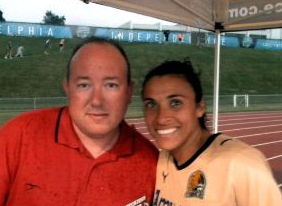
Jason Pratt is the Founder of ProConnect Sports (supporters include Jeff Tipping) and Partnership Manager for Positive Coaching Alliance (supporters include Claudio Reyna). Pratt has previously served as Director of Coaching for Boyertown Soccer Club and Director of Operations for Paul Riley’s Women’s Professional Supergroup, along with being a past clinician at United Soccer Coaches conventions and a Congressional Panel Member on the power of youth sports within a community.
Editor’s Note: This article popped up on the most read this morning and we thought it deserved to be republished!





